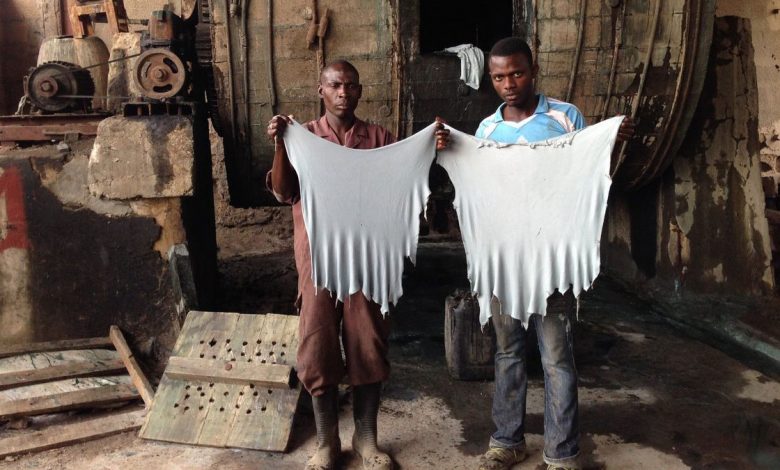COVID-19: Small Businesses Struggling to Survive in Kano, Operators Say

The Centre of Commerce, Kano, is home to small scale businesses and petty traders adorn one of Nigeria’s most populous states although it is the home of two of Nigeria’s business tycoons, Aliko Dangote and Abdussamad Rabi’u.
Small business owners are estimated to making up 90 of the business community.
From the east, the state is covered by the three major markets – Kantin Kwari, Abubakar Rimi and Singa markets. From the west, Dawanau market is the hub of agricultural produce attracting farmers from many parts of northern Nigeria.
With the COVID-19 pandemic ravaging the state and confirmed cases increasing at an alarming rate, the effect of the total lockdown on the state continues to hit hard on business owners who complain of the slow deterioration of their enterprises.
Kano is the epicentre of coronavirus pandemic in northern Nigeria with 602 cases as of May, 10, 2020. Medical experts warn of communal infection in the state as a large number of people go untested and many not respecting the restrictions order placed to encourage physical distancing to curb the spread of the virus.
However, despite warnings from World Health Organisation to the countries planning to lift lockdowns, the Governor of Kano State, Abdullahi Umar Ganduje, announced the easing of the lockdown to enable the resident to go to selected markets to buy Ramadan foodstuffs between 10:00am and 4:00pm on Monday’s and Thursday.
Kantin Kwari, the biggest textile market in Africa, remains closed despite the ease of the lockdown.
The market attracts wholesalers and retailers from all over Nigeria and neighbouring countries, such as Niger Republic, Chad and Cameroon, mostly in the period when the market is at its peak – Ramadan.
The coronavirus pandemic has forced shops in the market to close as hundreds of thousands of people currently spend their savings on foodstuffs without any plan to cover rents or pay wages.
“Market shutdowns and curfews are killing our businesses. We are not thinking of making profits now. We are fighting to sustain the business amidst this plaguing pandemic,” said Usman Dayyabu, a small business owner, selling garments at Kwari market in the state.
“The imposition of interstate travel and movement of goods are stumbling blocks to retailers coming to buy textiles from us,” Usaini Alkasim, a garment wholesaler in the market, said.
“We are scared, losing everyday. We don’t know how far this will go but we are certain that our businesses will take long time before rebounding,” Usaini added.
At the end of every Ramadan, business owners at Kwari market make annual adjustments, increase allowances and cover rents. Many business owners in the market told HumAngle that COVID-19 had wiped out such plans.
Instead of increasing allowances, business owners are considering slashing salaries or reducing the number of their workers. This consideration is spreading fear in the minds of workers who depend on the owners for a living.
Ni’imatullahi Kutumbawa, a petty trader at the market, said he used to sell 100 pieces of cloth everyday, mostly to buyers from Zamfara and Katsina states but with the imposition of curfews, travel restrictions and total lockdowns across the country he could only sell less than 10 pieces a day.
“I’m so scared,” he said. “If this continues I can’t sustain the business or the workers under me.”
Lawan A.S Aikawa, the Manager of Qatar MS, a small company engaging in telecommunication and travelling agency, said the firm paid its staff their April salary and would not likely pay May salary, at least not in full.
“Our profit is the main target. Our staff can’t be paid when we are gaining nothing. We are losing,” he said.
HumAngle gathered that most workers in Sabon Gari and Singa markets are paid on daily basis. With the market closed that means many workers would not get paid until the lift of the lockdown.
Meanwhile, Federal Government through Central Bank of Nigeria (CBN) has introduced different measures and incentives to control the effect of the pandemic on businesses in the country.
Interest rates are now reduced by the CBN from nine per cent to five per cent for one year, moratorium on all principal repayment of its intervention facilities extended for one year, and different loan schemes introduced to support small businesses.
Support Our Journalism
There are millions of ordinary people affected by conflict in Africa whose stories are missing in the mainstream media. HumAngle is determined to tell those challenging and under-reported stories, hoping that the people impacted by these conflicts will find the safety and security they deserve.
To ensure that we continue to provide public service coverage, we have a small favour to ask you. We want you to be part of our journalistic endeavour by contributing a token to us.
Your donation will further promote a robust, free, and independent media.
Donate HereStay Closer To The Stories That Matter





Actually, many businesses have lost rather than gaining due to the corona virus pandemic which has led to this lockdown. Even with the two day lockdown ease every week which enables major Kano residents buy foodstuffs and other essentials for Ramadan, it’s not easy for businessmen and petty traders and we as a whole. Though some residents within the state aren’t willing to abide by the restrictions, i’m sure the pandemic would’ve gone more viral without the state being on total lockdown. All we need is extreme help from the Almighty.